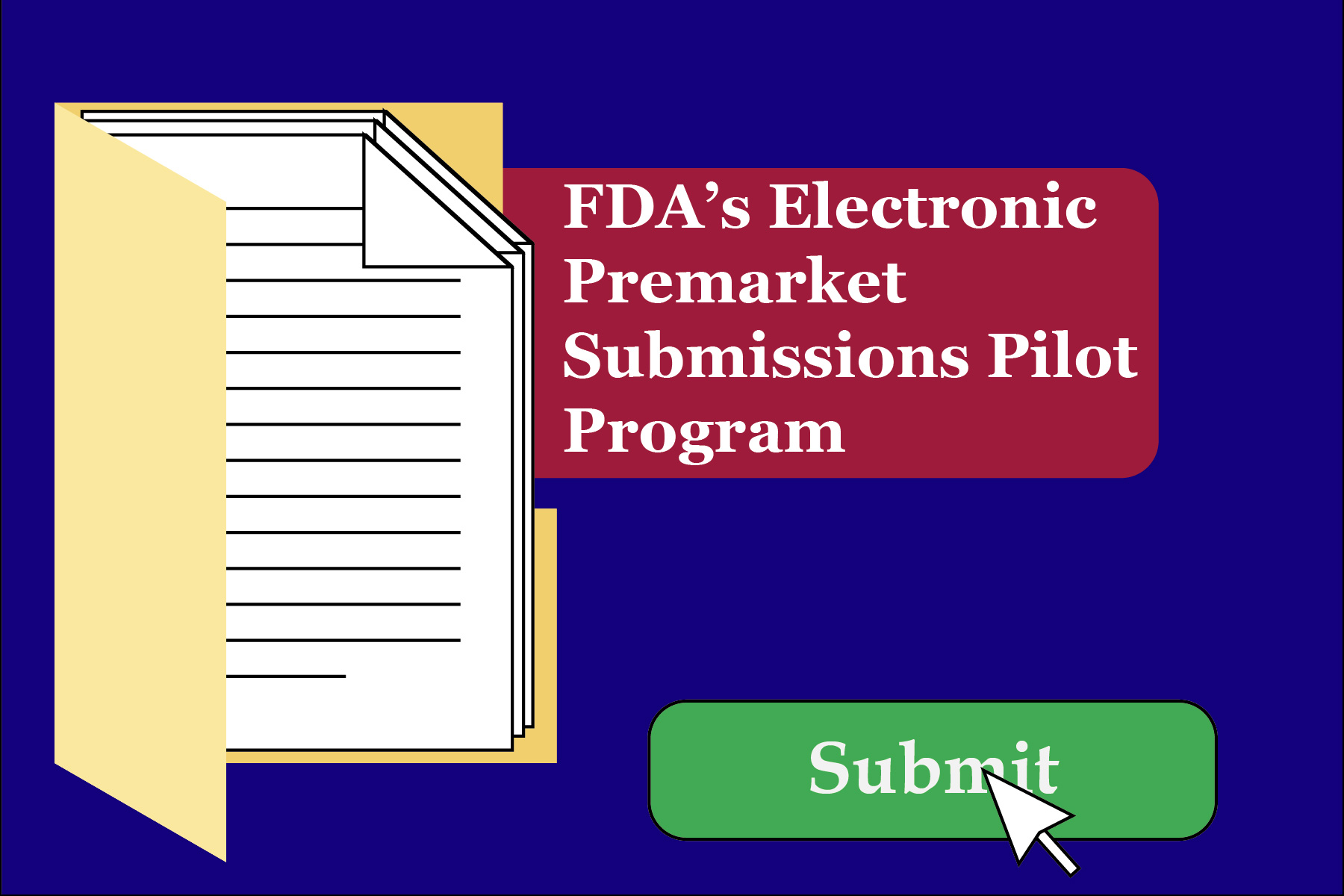The US FDA’s Center for Devices and Radiological Health (CDRH) announced a new pilot program that will allow the industry to submit premarket submissions electronically during the COVID-19 health emergency.1
The Electronic Delivery of Premarket Submissions Pilot Program’s objective is to test CDRH’s capabilities to receive pre-market submissions using BOX, which is a cloud-based sharing service. CDRH began accepting participants for this pilot on October 6th,2020 and the program is intended to last 90 days during the COVID-19 pandemic.1
The following is the eligibility criteria apply to enter the pilot program:1
- Companies who intend to submit an e-copy of a premarket submission within 2 weeks of acceptance into the pilot program.
- Can download and work with Box to upload files.
- Follow the required procedures for participants
CDRH has the right to withdraw the application of the participant if it finds that a participant is ineligible.
If you would like to participate in the program, you can submit a statement of interest to CDRH-Premarket-Submission-eDelivery-Support@fda.hhs.gov and include your statement of agreement to comply with the eligibility criteria listed above, a description of the premarket submission you intend on submitting within 2 weeks, and information on the size of your organization such as the number of employees and your revenue per year.1
CDRH will select up to 25 applicants that will include a broad spectrum of applicant types such as consultants that represent applicants. Enrollment will be ongoing throughout the pilot program.1
EMMA International will be happy to represent your application if you wish to participate in this pilot program. Call us today at +1 248-987-4497 or email us at info@emmainternatiional.com to learn more about how we can help.
1FDA (Oct 2020) Electronic Delivery of Premarket Submissions Pilot retrieved on 10/22/2020 from https://www.fda.gov/medical-devices/how-study-and-market-your-device/electronic-delivery-premarket-submissions-pilot






